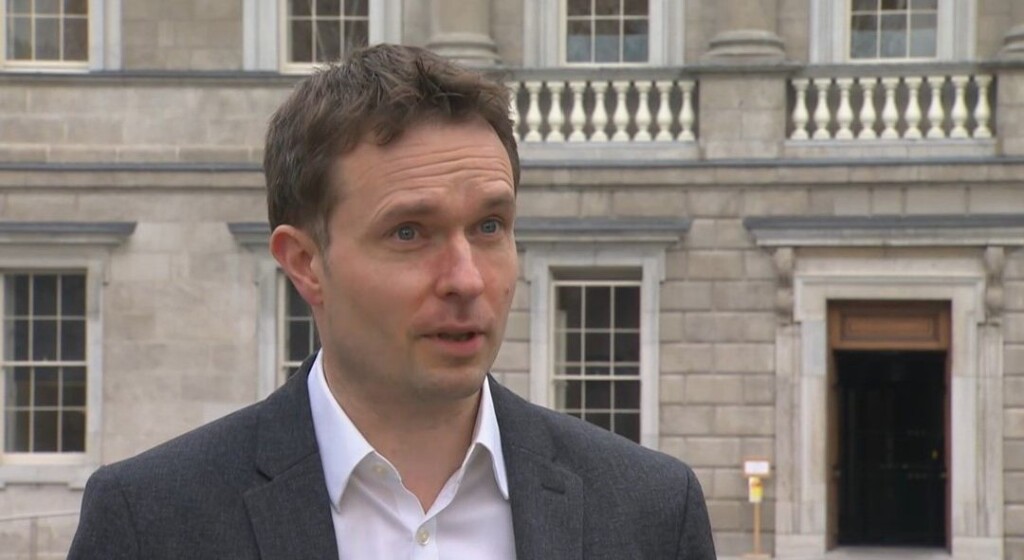2024 marks 10 years since local government in Ireland had powers such as say over transport and housing matters taken away and town and urban councils abolished.
The Local Government Act of 2014 was an austerity-era measure that has had ramifications up until the present day.
A recent report from the Council of Europe found that Ireland is near the bottom of the league table for powerful local democracies, carrying the dubious distinction of being ranked alongside Russia, Belarus, Hungary and Moldova.
In a series of articles detailing how different political parties view local democracy in Ireland, we have put representatives from across the political spectrum in the hot seat and this week sees Cian O’Callaghan from the Social Democrats answer our questions on local government.
Apart from his duties as TD for Dublin Bay North and his role as deputy leader of the Social Democrats, O’Callaghan also serves as the spokesperson on local government for the party.
Like most politicians, O’Callaghan served as a Councillor before being elected as a TD, so his local government being weakened is a sore point for him.
When asked if the Social Democrats, who were formed in 2015, were at a disadvantage because of their youth and a weakened local democracy, O’Callaghan stated “I don’t see this situation as parties being at an advantage or disadvantage. It is Ireland as a whole that is at a disadvantage.”
O’Callaghan says that local democracy being “hollowed out” is a great source of frustration for him, and this is repeated on doorsteps when canvassing.
“When I speak to people on doorsteps, there is a genuine sense of frustration that local government is so weak here. There is a real gap when it comes to transport or housing. When you compare us to other European countries, we have our hands tied behind our backs.”
O’Callaghan managed to tie the Social Democrats’ ethos of providing stronger public services with a desire to renew local democracy.
“When you look around Europe, you see that local municipalities are able to provide the likes of summer camps for children when they’re off school, or they have more say when it comes to public transport.”
Also serving as the party spokesperson on housing, O’Callaghan pointed to how strong local democracy elsewhere in Europe improves the lives of citizens.
He cited the example of the Austrian capital Vienna, where rents are €625 a month in large part thanks to the city government having strong sway over how and when infrastructure is developed and delivered.
Vienna’s city government is run by a coalition of the Social Democratic Party of Austria (classic centre-left, Labour analogue) and NEOS (centrist, liberal, not too dissimilar to the UK’s Liberal Democrats), which may provide a clue of what could be done in Ireland.
O’Callaghan was not interested in pinning the blame on the decline of Irish local democracy on any one party and instead opined to pitch solutions for the current democratic deficit.
Over the course of our investigation into the decline of local democracy, Fianna Fáil TD Paul McAuliffe has proposed bringing in an American-style system of a directly-elected mayor and a smaller set of Councillors that have executive decision-making powers, while Labour Councillor for Castleknock John Walsh proposed something akin to how democratic devolution was afforded to cities such as Manchester in the UK.
For the Social Democrats’ part, O’Callaghan believes that changing local democracy isn’t as simple as flipping a switch, but is something that can be achieved “bit by bit and on a more gradual basis.
“It could be as simple as affording more powers to local communities or local groups, for example. In the view of the party, the best way to bring back local democracy is building it back up.”
The Dublin Bay North TD noted that even before the Local Government Act of 2014, local government in Ireland was weak.
A former member of Fingal County Council, O’Callaghan said that the cuts to local government being made in the context of austerity measures is a prime example of “pennywise, pound foolish.”
“In the long run, abolishing town and urban councils and weakening the powers granted to councils cost Ireland more money,” he said.
In the context of the housing crisis, O’Callaghan stated that cheap rents “don’t fall from the sky,” and that a strong local government could play a “huge part” in bringing down rents for people.
He said that Social Democrats Councillors on Dublin City Council proposed zoning laws for affordable housing, and would have looked to change zoning laws that would have allowed housing units to be built on zones designated for industrial units.
The suggestions were vetoed, to O’Callaghan’s frustration.
“What our Councillors proposed was to place housing units in areas that were marked as potential industrial units, but because the Council had no real power to fight back against suggestions, it was shot down.”
He said that the Social Democrats had proposed to make a good chunk of housing developments built by Dublin City Council affordable housing, but councils not being able to scrutinise decisions made by the Department Of Housing or An Bord Pleanála is “problematic.”
Should the Social Democrats get into a position to create change within the system, O’Callaghan said it would be a priority of the party to strengthen the role that public services play in conjunction with stronger local government across Ireland, believing they go hand-in-hand.
“If you want to put it in other terms, it would actually be more cost-effective for Government to give more powers back to local government and let them make the decisions surrounding housing and transport,” he explained.
“We have a strong economy now, but a poor implementation of services; there is a real gap in terms of the potential that Ireland could be providing to its people and that starts with having a strong local government.”
